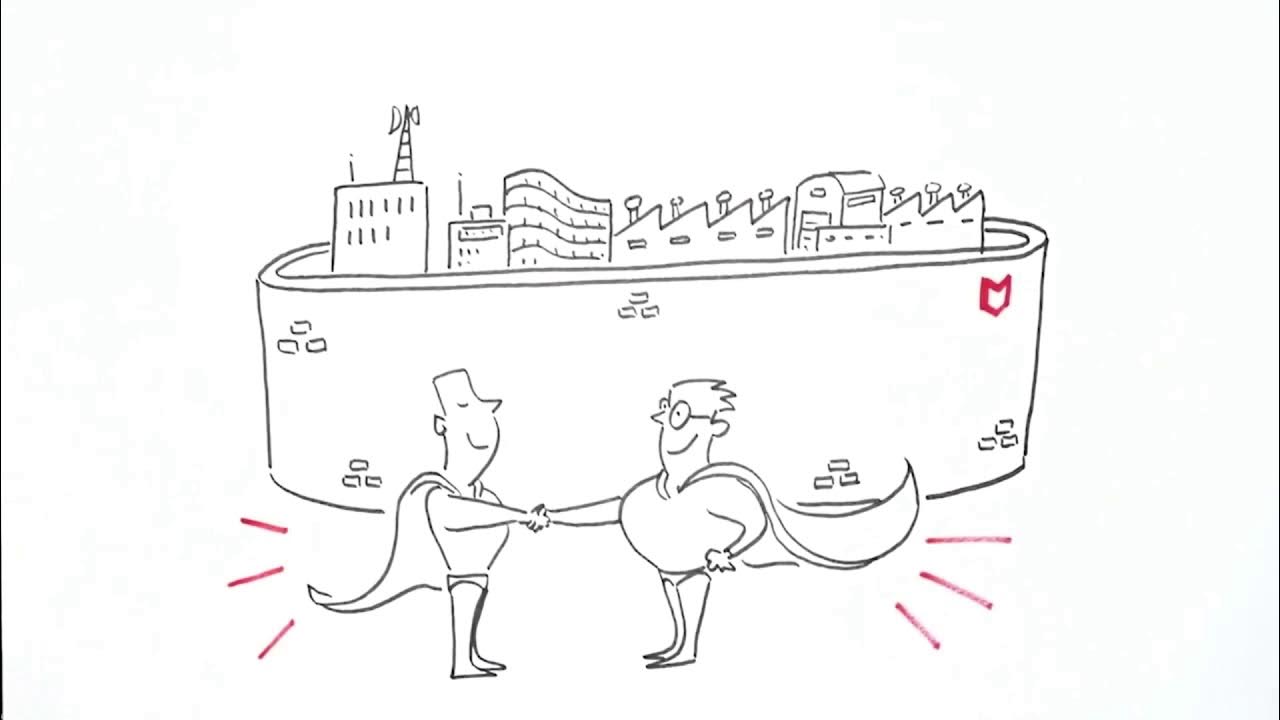Entenda: O que é e pra que serve a LGPD? – TecMundo
Summary
TLDRThe Brazilian General Data Protection Law (LGPD) regulates how personal data is collected, stored, and used by businesses and public organizations. It aims to protect individuals' privacy and prevent unauthorized use of personal data. The law sets clear rights for consumers and obligations for companies, with penalties for non-compliance. While inspired by the European GDPR, its full enforcement has been delayed, and the National Data Protection Authority (ANPD) is still in development. Despite these delays, the LGPD marks a significant step in safeguarding personal information and regulating data practices in Brazil.
Takeaways
- 😀 LGPD (General Data Protection Law) is a Brazilian regulation that governs the collection, use, and storage of personal data to ensure privacy and security.
- 😀 The LGPD aims to protect consumers' privacy by defining what businesses and public entities can and cannot do with personal data.
- 😀 The law applies to both local and foreign companies that operate in Brazil, including major players like Google and Facebook.
- 😀 LGPD ensures transparency in data collection, requiring businesses to inform consumers about the purpose of collecting their data.
- 😀 Companies must delete unnecessary data or retain it only if required by law.
- 😀 The law imposes penalties on companies for non-compliance, including fines and warnings, which are meant to enforce proper data handling practices.
- 😀 LGPD is inspired by the European Union's GDPR (General Data Protection Regulation) and was influenced by global privacy scandals like Cambridge Analytica.
- 😀 An important part of LGPD is the creation of the National Data Protection Authority (ANPD), responsible for overseeing enforcement and investigating violations.
- 😀 Certain exceptions exist under LGPD, such as for personal, academic, artistic, or journalistic uses, and for public security and criminal investigations.
- 😀 Despite concerns about its enforcement, the LGPD is seen as a major step forward in strengthening data protection and privacy in Brazil.
- 😀 The law requires companies to get explicit consent from consumers for data usage and gives them the right to control their own data more effectively.
Q & A
What is the LGPD and what does it regulate?
-The LGPD (General Data Protection Law) is a Brazilian regulation that outlines how personal data should be collected, stored, and used by companies, public entities, and individuals. It establishes rules for protecting user privacy and ensuring transparency regarding data collection practices.
Why was the LGPD introduced?
-The LGPD was introduced to protect the privacy of Brazilian citizens and prevent the unauthorized use or circulation of personal data. It aims to ensure transparency and accountability in how companies handle sensitive user information, particularly in the digital age.
How does the LGPD impact businesses operating in Brazil?
-Businesses in Brazil must comply with strict rules under the LGPD, including obtaining user consent for data collection, explaining the purpose for which data is being collected, and ensuring data is stored securely. Non-compliance can result in fines and penalties.
What are the rights granted to individuals under the LGPD?
-Individuals have the right to control their personal data, including requesting access, correction, or deletion of their data. They must also be informed about the purpose of data collection, and can withdraw consent at any time.
What are the penalties for non-compliance with the LGPD?
-Companies that fail to comply with the LGPD can face warnings, fines, and other penalties. Fines can be substantial, and repeated violations may result in higher penalties to enforce compliance.
Can companies continue to collect personal data without the user's consent under the LGPD?
-No, companies must obtain explicit consent from users before collecting or using their personal data. Data collection must also be limited to what is necessary for the intended purpose, and companies must be transparent about how they use the data.
What role does the National Data Protection Authority (ANPD) play in enforcing the LGPD?
-The ANPD is responsible for overseeing compliance with the LGPD, investigating complaints, and enforcing sanctions on companies that violate the law. It acts as the intermediary between the government and the public to ensure that the law is implemented effectively.
Has the ANPD been fully operational since the enactment of the LGPD?
-No, the ANPD faced delays in becoming fully operational. Though the law was passed in 2018, the ANPD only started functioning effectively in 2020, which impacted the law’s immediate enforcement.
How does the LGPD compare to the GDPR (General Data Protection Regulation) in Europe?
-The LGPD is similar to the GDPR in that both laws aim to protect users' personal data and privacy. However, the LGPD was tailored to Brazil’s legal framework and specific cultural and market conditions. It incorporates several principles of the GDPR, but there are some differences in the enforcement and application.
What are some real-life examples of how the LGPD has impacted businesses?
-One example is the case of Cyrela, a real estate company that was fined for using a customer’s data to make unsolicited marketing calls. This case illustrates how the LGPD is already being applied to prevent companies from misusing personal data.
Outlines

Esta sección está disponible solo para usuarios con suscripción. Por favor, mejora tu plan para acceder a esta parte.
Mejorar ahoraMindmap

Esta sección está disponible solo para usuarios con suscripción. Por favor, mejora tu plan para acceder a esta parte.
Mejorar ahoraKeywords

Esta sección está disponible solo para usuarios con suscripción. Por favor, mejora tu plan para acceder a esta parte.
Mejorar ahoraHighlights

Esta sección está disponible solo para usuarios con suscripción. Por favor, mejora tu plan para acceder a esta parte.
Mejorar ahoraTranscripts

Esta sección está disponible solo para usuarios con suscripción. Por favor, mejora tu plan para acceder a esta parte.
Mejorar ahora5.0 / 5 (0 votes)






